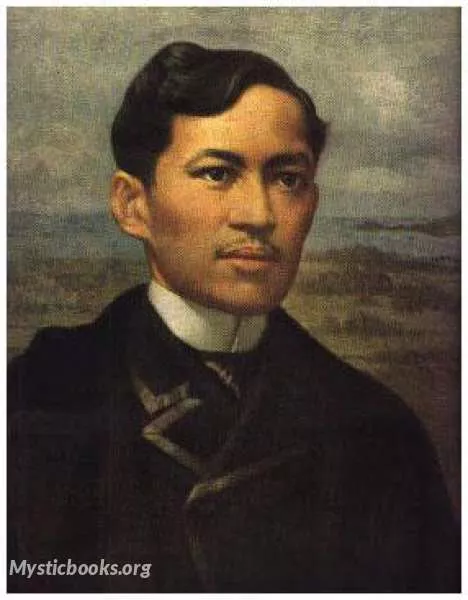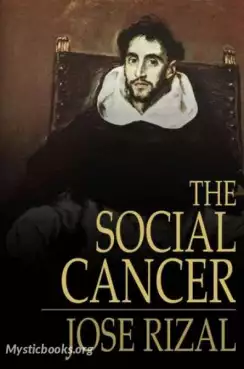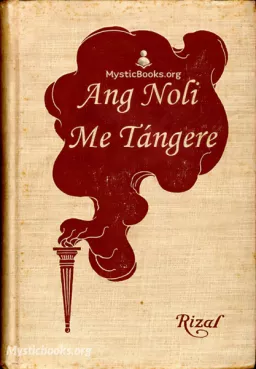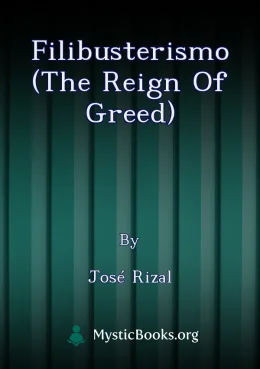
Timeline
Title
Country/Nationality
José Rizal
José Rizal was a Filipino nationalist and writer who is widely considered one of the national heroes of the Philippines. He was born on June 19, 1861 in Calamba, Laguna, and was the seventh of eleven children. Rizal's parents were both well-educated and encouraged him to pursue higher education. He studied at the Ateneo Municipal de Manila and the University of Santo Tomas, where he received degrees in philosophy and letters and in medicine.
Rizal's activism and writing were instrumental in the Philippine Revolution and the eventual independence of the Philippines from Spanish colonial rule. He is best known for his novels Noli Me Tangere and El Filibusterismo, which exposed the corruption and abuses of the Spanish colonial government and galvanized the Philippine independence movement. Rizal's writing and activism earned him a reputation as a radical and a threat to the Spanish authorities, and he was eventually arrested, tried, and sentenced to death. He was executed by firing squad on December 30, 1896.
Rizal's legacy as a national hero is cemented in the Philippines, where his birthday is celebrated as a national holiday and his likeness appears on the country's currency. His writing and activism continue to be widely studied and celebrated for their role in the Philippine independence movement. Rizal's legacy extends beyond the Philippines as well, and he is considered a hero and a champion of human rights by people around the world.
José Rizal, a revered Filipino hero, left an indelible mark on the history of the Philippines. His life and legacy continue to inspire generations of Filipinos, embodying the spirit of patriotism and the relentless pursuit of freedom.
Early Life and Background
Born in Calamba, Laguna, Rizal's childhood was shaped by the love and support of his close-knit family. Growing up in a nurturing environment, he developed a strong foundation for his future endeavors.
Multifaceted Achievements and Expertise
Rizal's exceptional talents spanned various fields, including writing, medicine, philosophy, and politics. His remarkable abilities and intellectual curiosity set him apart, showcasing his versatility and thirst for knowledge.
Literary Works: "Noli Me Tangere" and "El Filibusterismo"
Rizal's novels, "Noli Me Tangere" and "El Filibusterismo," hold profound significance in Philippine literature. Through these works, he fearlessly exposed the injustices and abuses committed by the Spanish colonial authorities and religious orders. Rizal's writings awakened national consciousness and shed light on the plight of his fellow Filipinos.
Advocacy for Reforms and National Consciousness
Rizal was an ardent advocate for reforms, firmly believing in equality and justice for all. He spoke out against the oppressive Spanish rulers, calling for social and political change. His unwavering commitment to the well-being of his people resonated deeply, inspiring hope and unity among Filipinos.
Persecution, Arrest, and Trial
As Rizal fearlessly challenged the status quo, he faced persecution from the Spanish authorities. Eventually, he was arrested and subjected to a trial that aimed to silence his voice. Despite the trials and tribulations, Rizal remained steadfast in his convictions, refusing to compromise his principles.
Martyrdom and Execution
Tragically, Rizal's unyielding dedication to the cause of freedom led to his martyrdom. On December 30, 1896, he was executed in Manila. His sacrifice became a catalyst for the Philippine Revolution, igniting a flame of resistance in the hearts of Filipinos longing for liberation from Spanish colonial rule.
Influence on the Philippine Revolution
Rizal's ideas and writings played a pivotal role in inspiring the Philippine Revolution against Spanish colonial rule. His calls for freedom and justice resonated with revolutionaries, who drew inspiration from his unwavering patriotism and commitment to the Filipino people.
National Hero and Cultural Icon
Recognized as the national hero of the Philippines, Rizal holds a revered place in the hearts of Filipinos. Monuments, statues, and commemorations across the country pay homage to his enduring influence and the values he represents.
Educational Significance and Legacy
Rizal's significance in education cannot be overstated. His writings and ideas are studied in schools and universities, providing valuable lessons about national identity, cultural pride, and the pursuit of freedom. Rizal's life and works continue to inspire future generations, reminding them of the importance of fighting for justice and upholding the values he held dear.
Inspiring Patriotism and Pursuit of Freedom
José Rizal's life and legacy exemplify the power of an individual's unwavering dedication to principles and the profound impact one person can have on a nation. His selfless actions, intellectual prowess, and ultimate sacrifice inspire Filipinos to embrace their heritage, fight for justice, and pursue freedom.
Books by José Rizal

Noli Me Tangere (The Social Cancer)
Noli Me Tángere is an 1887 novel by José Rizal during the colonization of the Philippines by the Spanish Empire, to describe perceived inequities of the Spanish Catholic friars and the ruling government. Noli Me Tangere is considered a national treas...

Noli Me Tangere (o Huwag Mo Akong Salingin!)
"Noli Me Tangere" ay Latin para sa "Huwag Mo Akong Salingin," at nililinaw ng nobela ang mga isyu sa lipunan, pulitika, at relihiyon ng lipunang Pilipino noong panahon ng Kastilang kolonyalismo. Isang pangyayari sa simula ng kuwento ang nagpapakilala...

Filibusterismo (The Reign of Greed)
El Filibusterismo, a sequel to Noli Me Tangere, plunges readers into the tumultuous Philippines under Spanish rule. The novel paints a stark picture of societal ills, with the influence of corrupt friars and the oppressive power of the colonial regim...